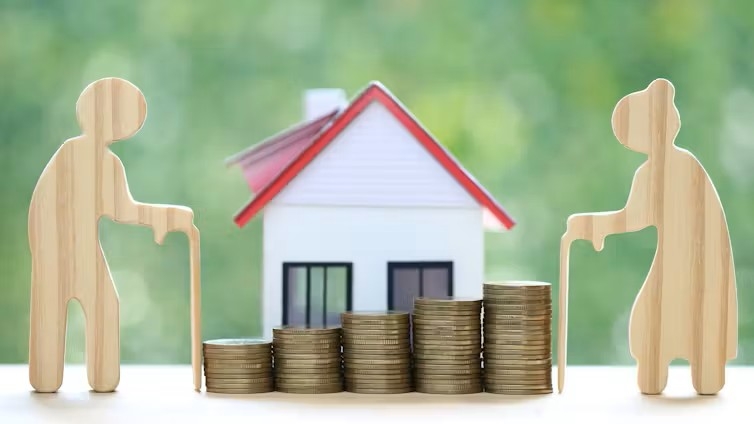A retirement strategy based on the equity held in a house is no longer as reliable as it has been in the past. Home ownership in Aotearoa New Zealand fell from 75% in 1991 to 60% in 2023 and is projected to fall to 48% in 2048.
The average age of a first-home buyer has also risen to 36, meaning an increasing number of New Zealanders (13%) are paying off their mortgages after they reach retirement age.
The number of retirees renting is also on the rise. By 2048, 40% of them will rent, placing pressure on New Zealand’s housing stock.
KiwiSaver is unlikely to replace the traditional housing nest egg. New Zealanders have, on average, NZ$37,079 in their KiwiSaver accounts, with thousands of people reaching close to retirement age with less than $10,000 saved.
Investing at the price peak
The prospect of retirement looks bleakest for those currently aged between 35 and 49 years old. A recent report from credit agency Centrix found this group was struggling the most financially.
A big part of the problem is that house prices skyrocketed just as they became first-time home buyers. The average asking price for residential property rose by 60.3% over the past decade, from $556,931 at the beginning of 2015 to $892,579 at the end of 2024.
While incomes have also increased, they have not matched housing prices. In 2000, houses cost about five times the median household income. But by 2025, the median price had risen to 7.5 times the median household income.
Those who bought their first home around the peak in 2021 are likely to be hit hardest by the forecast drop in house values. According to data insight firm Cotality (formerly Corelogic), nominal prices are expected to pass their 2021 peak by mid-2029. But when adjusted for inflation, prices in mid-2030 would be a fifth below the peak.
Working into retirement
Older New Zealanders are also facing significant housing pressures.
According to a 2022 report from Treasury, over half of superannuitants still paying off mortgages spent more than 80% of their superannuation income on housing costs. Those who are mortgage-free are spending less than 20% of their super on housing.
Between 2019 and 2024, the percentage of overdue mortgages for the 50+ age groups ranged between 2% and 2.5%, compared to a range of 1% to 1.5% for all mortgages.
People between the age of 55 and 64 are likely to have purchased their homes in the late 1990s and early 2000s, so are less likely to be hurt by the 2021 peak and subsequent trough.
Despite this apparent advantage, only 38% of people between 55 and 64 are mortgage free.
KiwiSaver issues
The possibility of using accumulated KiwiSaver funds to clear a mortgage is also diminishing. As a result of the 2025 Budget changes to KiwiSaver, employee and employer contributions will rise from April 2026 to 3.5% and from April 2028 to 4%, offsetting the reduced annual government contribution.
The end of employer contributions matters particularly to the 24% of those aged over 65 years who are still in the workforce. A rule change in 2021 means employers are not required to make contributions or to deduct employee contributions, unless the employee continues to make KiwiSaver contributions.
But current global crises are affecting KiwiSaver returns. Uncertain and volatile markets, especially for actively managed funds, mean fund managers reallocate money to try to minimise losses. Not all their bets pay off.
By 2030, Stats NZ projects that approximately 265,000 people aged 65 and over will be in the workforce.
The Office for Seniors notes that although older workers have challenges finding and staying in paid work, a third of the workforce is aged over 50 and 50% of people aged 60 to 69 are employed.
Importantly, as the Retirement Commission research found, a third of people over 65 were not working by choice. An increasing number, who neither own their home nor have significant retirement savings, have to continue working past 65 because they need the money to eat and pay the bills.
As New Zealand’s population ages, and more seniors have to work to pay for the essentials, it’s clear retirement is going to look different. Betting on the value of a house to fund life after 65 is less certain than it used to be. More than ever, New Zealanders need to consider how they will live well in their later years.![]()
*Claire Dale, Research Fellow, the Pensions and Intergenerational Equity (PIE) research hub, University of Auckland, Waipapa Taumata Rau
This article is republished from The Conversation under a Creative Commons license. Read the original article.


We welcome your comments below. If you are not already registered, please register to comment
Remember we welcome robust, respectful and insightful debate. We don't welcome abusive or defamatory comments and will de-register those repeatedly making such comments. Our current comment policy is here.